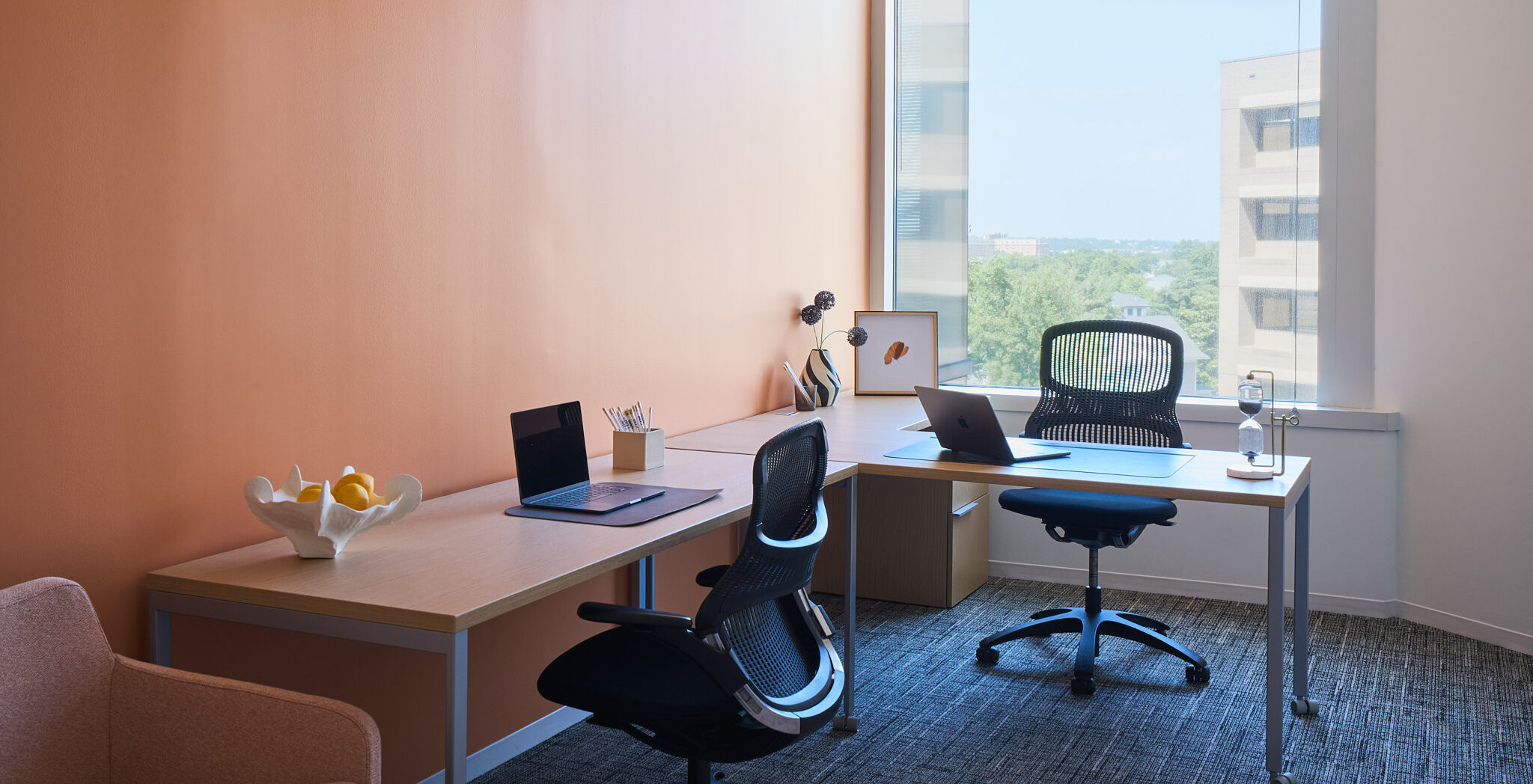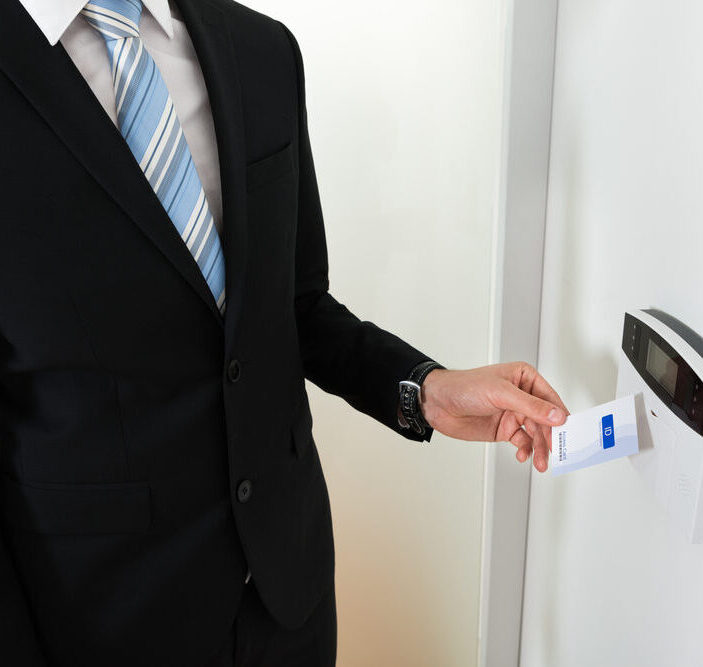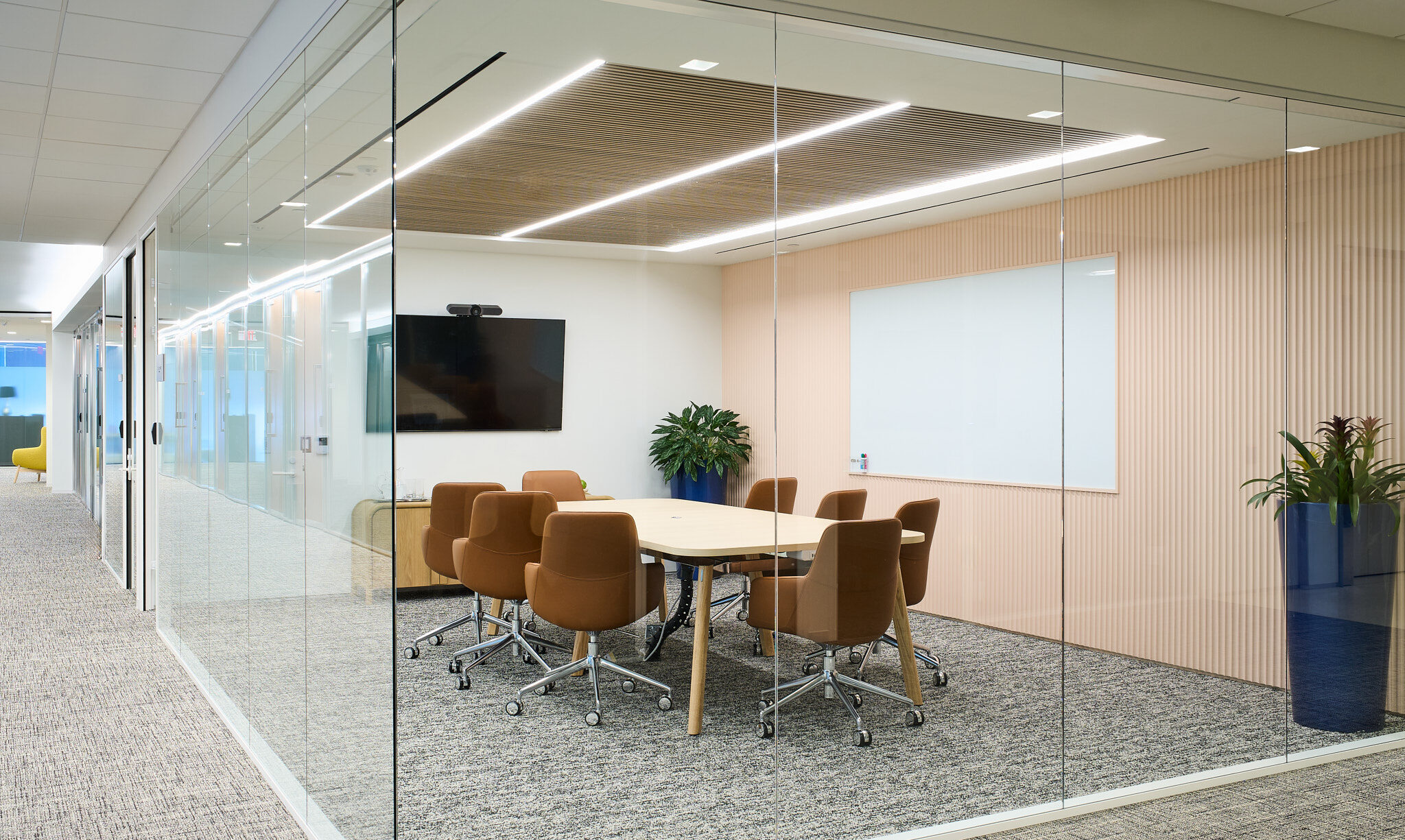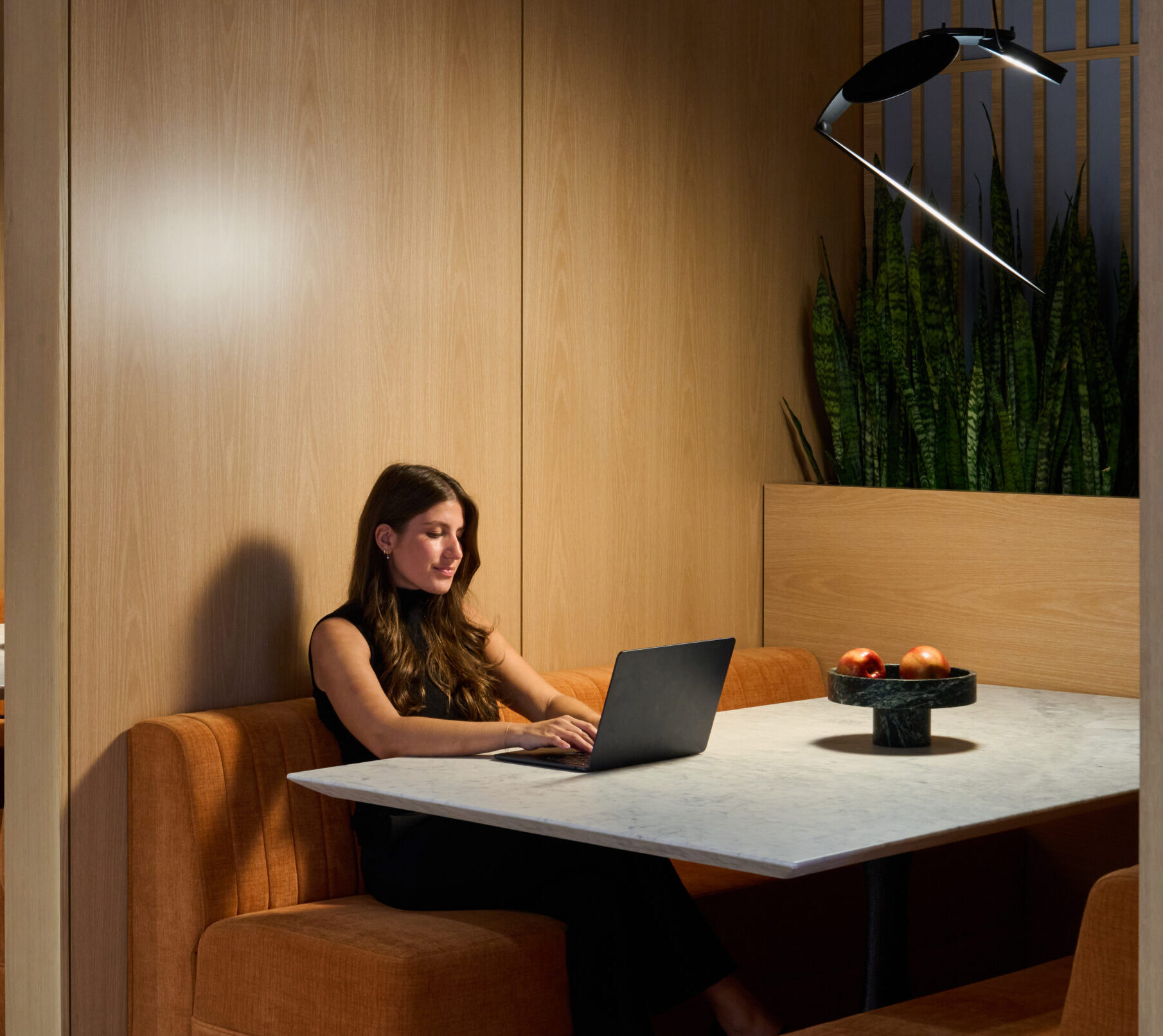Premier Access: Up to 2 Months Free at Select Locations. Learn More
Carr Workplaces
How to Stay HIPAA Compliant in a Flexible Workspace
Sep 5th, 2025 
HIPAA compliance isn’t optional if you work in healthcare, or even if you just handle patient information as part of your business. It’s the law.
However, there’s something that many businesses overlook: compliance goes beyond what happens inside your software or your filing cabinets. The space you choose to work in can have a profound impact on your ability to protect sensitive information.
Unsure how your workspace affects HIPAA compliance? Read on to learn more.
You might not think of a coworking or flexible office provider as part of your compliance strategy, but the right environment can go a long way toward helping you meet HIPAA requirements. Of course, you still need to know what you’re responsible for, what risks to watch for, and how Carr Workplaces makes it easier to keep patient information safe.

Why HIPAA Compliance Matters for Your Workspace
The Health Insurance Portability and Accountability Act (HIPAA) was designed to secure protected health information (PHI). That includes everything from patient medical histories to billing information. If you’re storing, transmitting, or even discussing this kind of information, the law requires you to keep it private.
The penalties for failing to comply can be severe and include fines, damage to your company’s reputation, and even loss of business.
Patients trust you with their most personal information. It’s your job to make sure it doesn’t end up in the wrong hands – which should be obvious.
What’s less obvious is that HIPAA compliance goes beyond having the right digital safeguards in place. Your business’s physical space matters, too.
- Are your conversations private?
- Are your records locked away?
- Is your internet secure?
These are the questions you need to ask before choosing where to work, because all workspaces aren’t created equally.
What You’re Responsible For Under HIPAA
You, the business owner, are responsible for HIPAA compliance, not your office provider. That said, understanding your responsibilities helps you know what to look for in a workspace. Here are the main areas you need to cover:
- Protect electronic PHI (ePHI): Data stored on your devices or transmitted over the internet must be encrypted and secure.
- No unauthorized access to paper records: Anything in print (charts, notes, billing statements) must be protected.
- Privacy in conversations: Whether it’s a phone call, a team meeting, or a consultation, you can’t risk being overheard.
That may sound simple enough, but when you work in a shared or flexible environment, living up to those responsibilities requires some planning and forethought.
How Your Workspace Affects Compliance
While you’re technically responsible for your company’s HIPAA compliance, the office space you use is a foundational part of your overall strategy. Remember, it’s not just about digital encryption.

Private Offices and Soundproofing
While open coworking may be great for networking and collaboration, it’s not great for privacy. When your work involves sensitive information like PHI, privacy matters. That’s why many Carr Workplaces locations offer private offices, phone booths, and meeting rooms designed to reduce noise and provide a more confidential environment for your conversations.
Lockable Storage
HIPAA requires that paper records be protected. That means you need secure filing cabinets, desks with locks, and offices that can be locked when you’re away. With Carr, you can choose office setups that include lockable storage, so that documents always stay under your control.

Controlled Access
Who can walk into your workspace? If the answer is “anyone,” that’s a compliance problem. Carr Workplaces uses access badges or keys to control entry to offices and shared spaces. Some of our buildings even have visitor check-in systems that track non-members. Also, we don’t use security cameras inside office spaces, since those could create new risks for privacy.
Securing the Digital Side
Beyond the physical side of HIPAA, there are lots of digital considerations. What happens on your network directly affects your HIPAA compliance. If you’ve ever worked in a coffee shop or have used public Wi-Fi, you know how vulnerable that can be. The same principle applies in coworking spaces, but Carr Workplaces takes a different approach.
- Dedicated, Secured Networks: We provide separate VLANs and networks, so your traffic isn’t combined with other businesses.
- Password-Protected Wi-Fi: Open networks are a compliance nightmare. Our Wi-Fi is secure and segmented.
- Enterprise-Grade Firewalls: Firewalls block unauthorized access before it becomes a problem.
- Encrypted Traffic: We support and encourage the use of VPNs and TLS/SSL connections to keep data encrypted from end to end.
Beyond the basics, we also offer HIPAA-friendly services like VoIP phones, on-site document shredding, and secure printer/copier configurations. Our in-house IT department can also help make sure your setup matches your compliance needs.
Don’t Forget the Human Element
Technology and space matter, but compliance also depends on people. Some of the most common HIPAA compliance issues stem from team members who don’t know how to handle sensitive information.
That’s why training is so important. You’ll want to make sure your staff knows:
- Not to access PHI accidentally.
- What to do if they encounter sensitive information.
- How to keep conversations confidential.

Practical Steps You Can Take
To make this even easier, here’s a quick checklist you can use to evaluate your workspace and practices:
- Choose the right space: Opt for private offices, soundproof rooms, and lockable storage.
- Secure your internet and devices: Use encrypted Wi-Fi, firewalls, and VPNs.
- Use HIPAA-compatible equipment: Configure printers, phones, and copiers with security in mind.
- Manage physical documents: Shred what you don’t need and lock up what you do.
- Maintain confidentiality: Be cognizant of what’s being mentioned in conversations and who might overhear.
- Train your team: Make sure everyone knows the rules and respects patient privacy.
- Know when you need a Business Associate Agreement (BAA): If a vendor touches PHI on your behalf, you’ll need a BAA.

How Carr Workplaces Supports Your Compliance
While compliance is ultimately your responsibility, Carr Workplaces can help provide you with the tools, spaces, and services to make it possible. With private HIPAA-friendly office solutions, secure networks, soundproofing (where available), shredding services, and IT support, we provide a strong foundation for your compliance strategy.
Whether you’re a solo practitioner who needs a small, lockable office or a healthcare startup that needs a full floor with secure access, we’ve designed our workspaces to give you both flexibility and peace of mind.
HIPAA Compliance Is Easier Than You Think
HIPAA compliance doesn’t stop at your computer screen. It extends to the walls around you, the locks on your doors, and the networks you connect to every day. By choosing a workspace that puts security and privacy first, you make it easier to comply with HIPAA rules and focus on what really matters: serving your patients or clients.
At Carr Workplaces, we provide an environment that supports the way you work and protects the sensitive information you’re entrusted with. If you’re ready to explore coworking options that support your confidential needs, reach out today. Let’s build the right workspace for your business together.
Sources:
https://carrworkplaces.com/
https://www.hhs.gov/hipaa/for-professionals/privacy/laws-regulations/index.html
https://www.hipaajournal.com/considered-phi-hipaa/
https://www.hhs.gov/hipaa/for-professionals/compliance-enforcement/data/enforcement-highlights/index.html
https://www.hhs.gov/hipaa/for-professionals/covered-entities/sample-business-associate-agreement-provisions/index.html